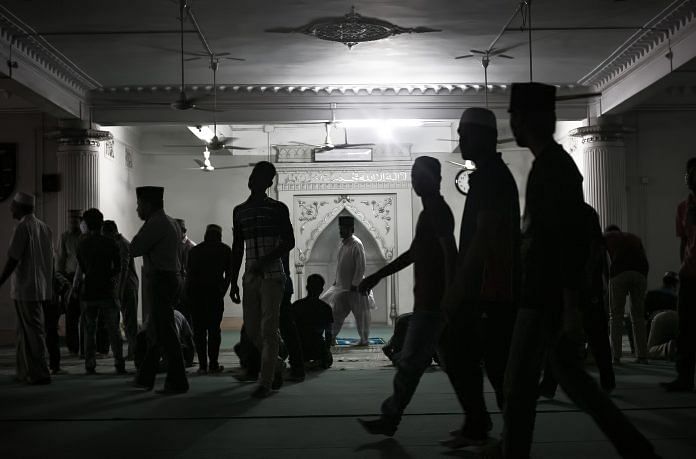When it comes to Islamist terrorism, Bangladesh hardly figures on the mental map of most Americans. In my most recent Wall Street Journal column (read it here) I argue this must change. The world needs to start taking the threat from the South Asian country more seriously.
So far the most high-profile attacks by Bangladeshis on American soil have been failures. Last month, Akayed Ullah, a 27-year-old immigrant from Dhaka, tried to blow himself up in a crowded Manhattan subway tunnel using a crude bomb fashioned from a piece of pipe and matchheads. The bomb misfired, and the only person seriously injured was Ullah himself. He told investigators that he carried out the failed attack on behalf of the Islamic State.
Five years ago, another Bangladeshi, then 21-year-old Quazi Mohammad Rezwanul Ahsan Nafis, tried to blow up the Federal Reserve Bank in New York with what he thought was a 1000-pound bomb in a van. Unfortunately for him, his co-conspirators turned out to be undercover Federal Bureau of Investigation agents. A court handed Nafis a 30-year prison sentence.
These botched bombings may make us somewhat sanguine. The likes of Ullah and Nafis come across as bumbling rubes rather than deadly terrorists. Obviously a person who injures himself with a makeshift pipe bomb will not evoke the same degree of alarm as one who slams a Boeing 767 into a skyscraper. Over at National Review, Nicholas Grossman makes the sensible point that many would-be terrorists are incompetent, a detail that breathless media coverage often loses sight of.
Nonetheless, the jihadist threat from Bangladesh is real and growing. For starters, as Ali Riaz, a political scientist at Illinois State University points out, a new generation of militants are better educated, more tech savvy, and more globally networked than their predecessors, who tended to emerge from traditional Islamic schools.
In 2016, the Islamic State attacked an upscale restaurant in Dhaka and killed 20 hostages, 18 of them foreigners from Italy, Japan, the US, and India. Those implicated in the attack included a Bangladeshi-Canadian chemistry graduate from Ontario, a Bangladeshi Hindu convert to Islam who taught business administration in Japan, and privileged Bangladeshi students at the Malaysian campus of Australia’s Monash University.
As many as 100 Bangladeshis may have left the country to join the Islamic State in Syria and Iraq. This is a small number for a Muslim-majority nation of 160 million people — and both Bangladesh’s relatively moderate society and earnest counter-terrorism effort deserve credit — but it nonetheless marks a more serious transnational threat from the country than we’ve seen before.
Then there’s the Bangladeshi diaspora, especially in Britain. Riaz, the political scientist, estimates that as many as 100 of the 850-odd British jihadists who have traveled to Syria and Iraq may be of Bangladeshi origin. This likely pales compared to the number who are of Pakistani origin — Bangladesh was a part of Pakistan until it broke away to become an independent nation in 1971 — but it’s not a trivial number. More generally, Britain’s inability to get a handle on homegrown radicalism affects us all.
Al Qaeda has vowed vengeance on behalf of its “Muslim brothers.” In Pakistan, the UN-designated terrorist group Jamaat-ud-Dawa has taken to the streets to collect funds for the Rohingya. Before the attempted subway bombing, Ullah traveled to a refugee camp near the Bangladesh border with Myanmar.
In September, Bangladesh Prime Minister Sheikh Hasina told me about the challenge the Rohingya influx poses for her country. Bangladesh has to look after a traumatized refugee population — the vast majority of Rohingya have nothing to do with terrorism — while ensuring that jihadists do not exploit the crisis to expand their footprint in the country.
In fairness, Bangladesh has done a better job of combating radicals in its midst than many countries, without always getting the credit it deserves. For instance, the Sheikh Hasina government has prosecuted alleged war criminals from the Islamist group Jamaat-e-Islami responsible for widespread atrocities against civilians in the run up to independence from Pakistan. Bangladeshi identity, rooted more in language than in faith for many people, provides a partial firewall against radical ideas.
Nonetheless the fight against terrorism remains an uphill struggle, especially against the backdrop of what the author and publisher K. Anis Ahmed calls the country’s “creeping Islamism.” For an outside observer, it’s hard not to conclude that Bangladeshi jihadists are becoming more sophisticated, ambitious, and networked than before. We should not let the botched bombing in New York distract us from this fact.
Sadanand Dhume is a resident fellow at the American Enterprise Institute.
This article originally appeared on the American Enterprise Institute website.



